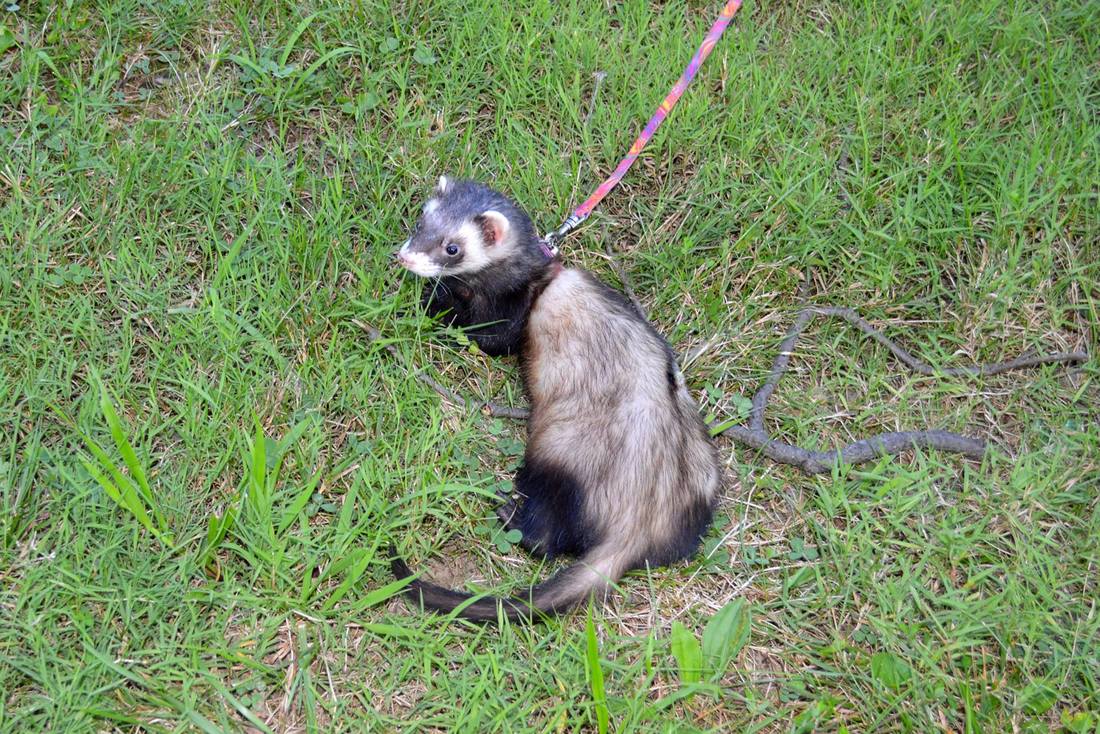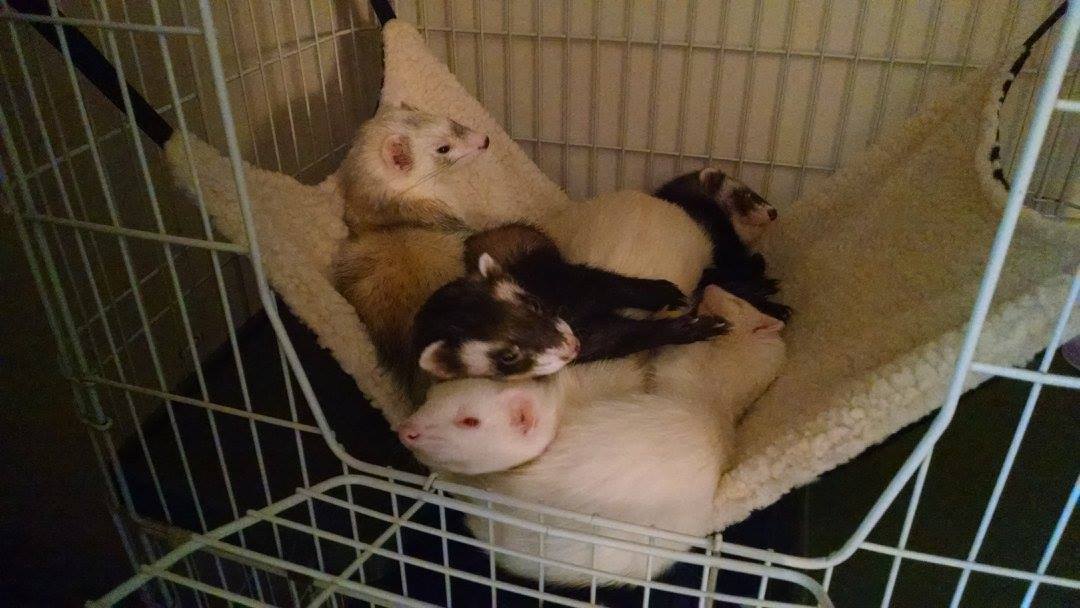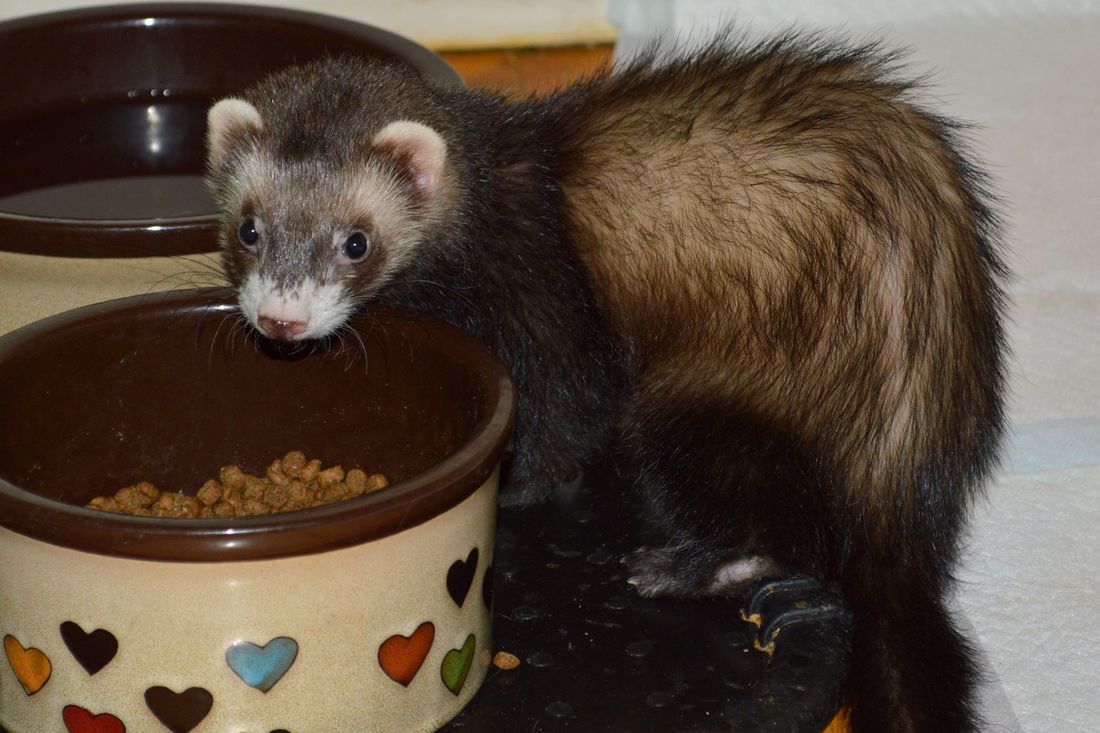We often get asked if ferrets make good pets. Our honest answer is that it depends what you are looking for in a pet. If you are looking for a simple, low maintenance pet that can be kept caged for most of the day, then then ferrets would be a poor match. Ferrets are more comparable to keeping a cat or a dog than keeping other small mammal pets. Like cats and dogs, ferrets require annual veterinary exams and rabies vaccines. While ferrets can be housed in a large cage, they require significant out of cage time for exercise, mental stimulation, and socialization. Ferrets may be a good match for individuals who are unable to have a cat or dog due to allergies, limitations with an apartment, or long work schedules. While ferrets are surprisingly tough, they tend to play more roughly which may not be suitable for families with young children. As a pet for older children, ferrets are more tolerant than other small pets that are typically advertised for children. While it is not unheard of for a ferret to reach the age of 9 or 10, it is incredibly uncommon with most ferrets living between 5 and 7 years. Ferrets are prone to a variety of health issues which can be very expensive. We wrote about the veterinary cost for three of our oldest ferrets here: www.ferretsandfriends.org/blog/what-does-it-cost-ferret-health
Ferrets are incredibly mischievous. Creating a ferret-safe space for your ferrets to run around can be quite a challenge. Anywhere their skull can fit, they can fit. In our experience, we have ferrets that could fit under doors or cabinets. Certain types of furniture such as reclining chairs can be hazardous for a pet ferret. Ferrets can also cause a great deal of damage to furniture, carpeting, and other possessions. Even with their musk gland removed, ferrets still have their distinctive odor which is impossible to completely eliminate. Like dogs and cats, ferrets can eat appropriate dry food or wet food that can be found in most pet stores. They should have access to food and water at all times. Ferrets have a very fast metabolism so their body may start breaking down fat reserves if they go more than four to six hours without eating. Ferrets tend to eat frequently throughout the day and night. This means that they may go to the bathroom more frequently. Many ferrets can be trained to use a litter box with some effort. For our ferrets, we use both puppy pee pads and litter boxes. Animal Care Costs (2018 Prices): Setup
Animal Care Costs (2018 Prices): Annual Maintenance
1 Comment
|
About the blogFerrets and Friends, LLC has four writers bringing you information on a variety of topics from pets to wildlife, education to conservation, and from new developments in our business to information about our industry. Learn something new each week! Archives
August 2020
Categories
All
|



 RSS Feed
RSS Feed